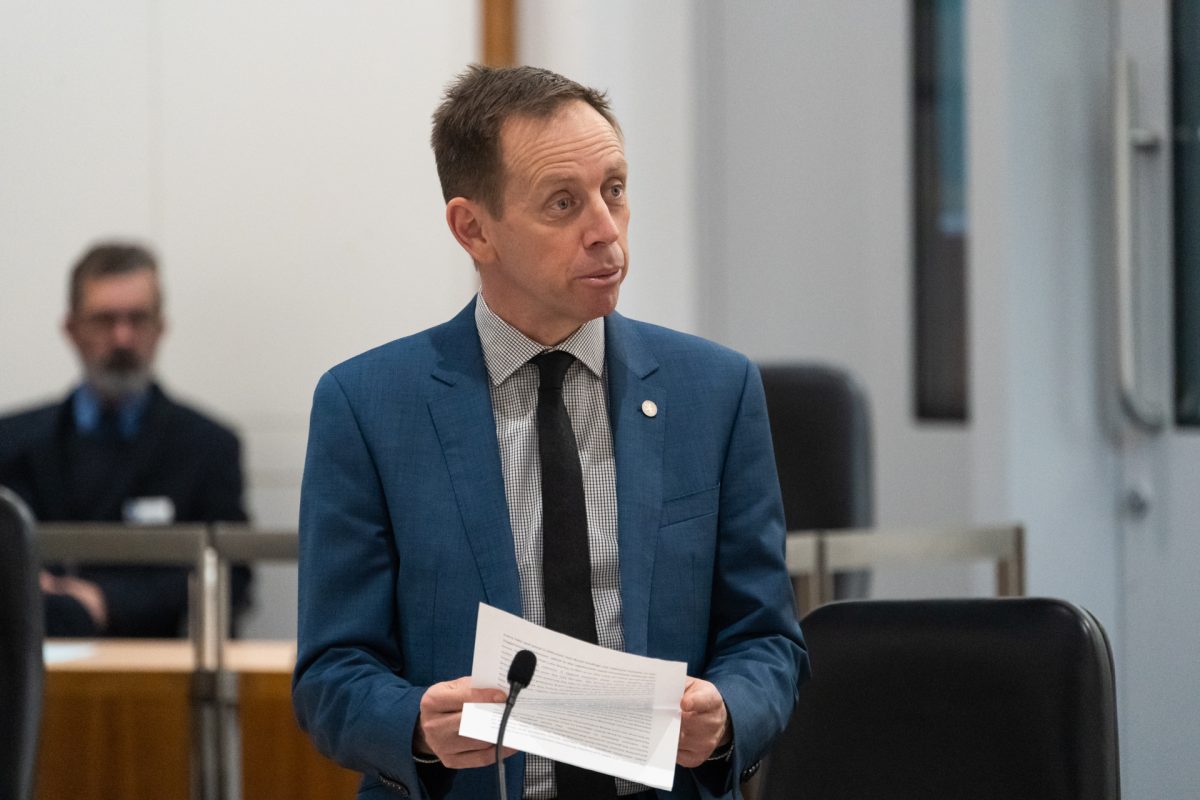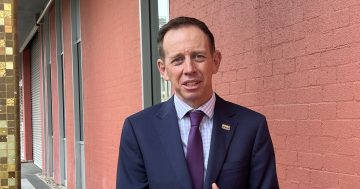
Attorney-General Shane Rattenbury introduced the Statute Law Amendment Bill 2022, which will update almost 40 pieces of ACT legislation with gender-neutral language. Photo: Region Media.
Around 40 pieces of ACT legislation will soon be updated with gender-neutral language.
That means references in the acts to ‘he’ or ‘she’, ‘his or her’, ‘him or her’ and ‘himself or herself’ will be deleted in favour of ‘they’, ‘their’, ‘them’, ‘themself’ or the relevant noun.
Attorney-General Shane Rattenbury said this change is in line with current guidelines for drafting legislation.
What is ‘gender-neutral’ language?
Its official definition is language that doesn’t identify or refer to a gender.
For example, words like fireman, policeman and chairman were used because there were times when only men could hold those positions.
These are gradually being phased out and replaced with so-called neutral terms like ‘chair’, ‘police officer’ and ‘firefighter’.
Why is the ACT Government changing the language of its laws?
Mr Rattenbury said gender–neutral language is important to create an accepting and inclusive Canberra.
“Language is important and powerful. Many Canberrans are gender diverse, and Canberra is an inclusive and welcoming community. It is time that the language of our legislation reflects that,” he explained.
“The use of personal pronouns in the masculine or feminine are simply no longer appropriate in our legislation. The use of gender–neutral language in our society is important to reflect and foster an accepting, inclusive, and progressive Canberra community.”
Many people who are non-binary and don’t identify as either male or female use the pronoun ‘they’ to refer to themselves because it is not explicitly gendered.
“Using gender-fair and inclusive language also helps reduce gender stereotyping, promotes social change and contributes to achieving gender equality,” Mr Rattenbury said.
Does this change have any precedent?
A petition to remove gendered pronouns from the Australian Constitution last year didn’t really get anywhere.
The Australian Constitution contains the pronouns “his” and “he” around 70 times in reference to the Governor-General, Justice of the High Court, Justices of Courts, Members of the House of Representatives and Senators.
Petitioners called on the government to replace these references with neutral terms such as “this person” or “these people”.
That petition garnered 148 signatures and was ultimately rejected by then-Attorney-General Michaelia Cash who responded in writing that the Commonwealth Government was not currently proposing any changes to the Constitution.
She referenced a “longstanding rule of interpretation that, unless the contrary appears, words importing the masculine gender include females”.
But an updated Commonwealth Style Manual, which was released in October 2020, recommended the use of gender-neutral pronouns.
The manual said pronouns like ‘they’ or ‘them’ should be used unless an individual could be asked for their preference.
What’s the issue with using ‘they’?
Many people (grammar lovers) have a problem with using the pronoun ‘they’ in English to refer to a singular person without specifying a gender.
But some scholars say this was not always the case and that hundreds of years ago, ‘they’ was often used in the singular form.
In fact, it’s believed it was used in this form as early as the 1300s to refer to an unspecified, unknown person.





















